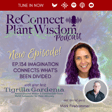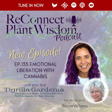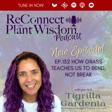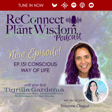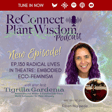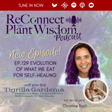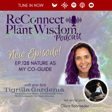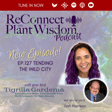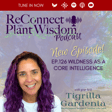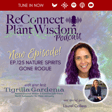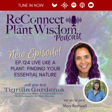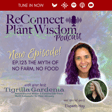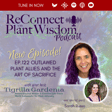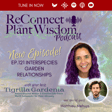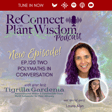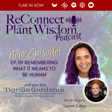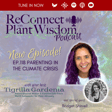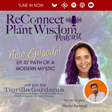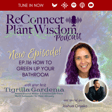
Ep.101 Living in the Mystery of Life with Jamie Harvie
This episode was one of those soul-nourishing conversations that had me reflecting long after we hit stop. I sat down with Jamie Harvie—an engineer, strategist, and bridge-builder between healthcare, ecological wellbeing, and sacred connection. We explored what it really means to be in relationship with the world around and within us, not as isolated individuals but as deeply interconnected beings.
From the fragmentation of modern life to the beauty of feeling held by the microbes in our bodies and the kin in our communities, this episode invites you into the mystery of being alive. Jamie and I talked about the power of gratitude, the importance of somatic knowing, and how to build inner and outer ecosystems that support thriving—not just surviving.
If you’ve ever felt like your love for Nature and your many passions didn’t fit into modern frameworks of success or mental health, this conversation is your invitation to honor that difference. You are not broken. You are deeply alive.
Topics Covered about Mental Health through Nature Connection
➡️ Positive mental health is more than the absence of struggle—it’s about connection, meaning, and gratitude.
➡️ We are never truly alone: plants, microbes, and kin surround and support us.
➡️ Complexity science is helping us normalize mystery and nonlinear understanding.
➡️ Gratitude isn’t fluffy—it’s foundational to wellbeing and collaboration.
Chapters
00:00 Introduction
06:58 Sacred Self and Nature
13:26 Who Gives A Crap?
15:27 Holistic Thinking for Mental Health
23:33 Nature's Wonder and Intellectualization
37:12 Interconnectedness of Human and Non-Human Entities
42:52 Gratitude and Connection in Daily Life
46:39 Intuition and Non-Logic in Consciousness
53:21 One Sacred Earth Project
Resources Mentioned
🌱 About Jamie Harvie
🌱 One Sacred Earth Project
🌱 Aliveness Initiative
🌱 Plant Wisdom Book Club
🌱 Chaste Mimosa by Terence McMullen
Expanded Show Notes
☝🏽ReConnect with Plant Wisdom podcast Ancient and modern knowledge from biology to spirituality about the wondrous ways plants help you lead a Naturally Conscious life.
Subscribe here and on your favorite podcast player.
👉🏽 Join the Naturally Conscious Community to nourish human-plant relationships
// Get to Know Me, Tigrilla //
// Let's Work Together //
// Shop from EcoConscious Partners //
Important Messages for Humanity on Gaia
More Partners: https://tigrillagardenia.com/shop/
Opening and Closing music by @Cyberinga and Poinsettia.
// Let's Connect on Social // Facebook | Instagram | LinkedIn | Youtube

